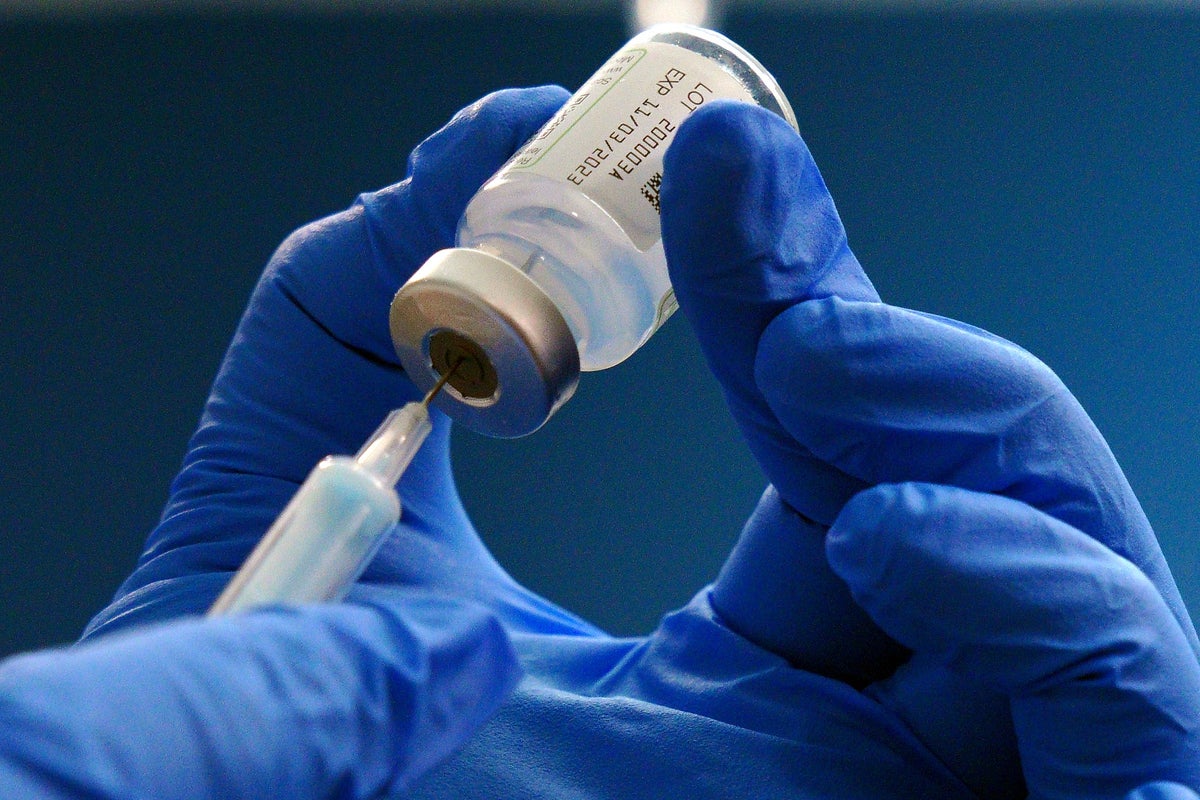
Changes to two NHS vaccine programmes have come into force in a move officials said will “ultimately save lives”.
Almost one million more people are now eligible for a shingles vaccine, while the HPV jab – offered to children in a bid to eliminate cervical cancer – will go from two doses to one.
Following advice from the Joint Committee on Vaccination and Immunisation (JCVI), the NHS said the updates will “make it easier for people to get protected, especially those who are more vulnerable”.
The expanded shingles programme will include people who turned 65 and 70 from September 1 2023, as well as those over the age of 50 with a weakened immune system.
Patients will be invited to book a jab at their GP surgery, with 900,000 expected to be newly-eligible.
The shingles vaccine was first introduced in England in 2013.
In the first five years there were 45,000 fewer GP consultations and 1,840 fewer hospital admissions for the illness, the NHS said.
It is estimated that one in five people will develop shingles in their lifetime, which can lead to blindess, nerve pain, hearing loss and even death.
People can be infected at any age, but the severity of the illness and risk of complications increases with age.
The change comes as the vaccine for the human papillomavirus (HPV) moves to one dose, which was announced by the UK Health Security Agency (UKHSA) in June.
Launched in 2008, the jab, along with cervical screening, “has the potential to eliminate cervical cancer completely”, the NHS said.
It is offered to all children in school Year 8, when they are aged 12 to 13, and helps prevent a range of cancers, including cervical, cancers of the head and neck (mouth and throat), and cancers of the anus and genital areas.
Making these vital changes to two life-saving NHS vaccination programmes will help protect millions of people, prevent disease, and ultimately save lives— Steve Russell, NHS England
Children will now be offered a single dose along with eligible gay, bisexual and other men under the age of 25 who have sex with men. Older people in these groups – aged 25 to 45 – will remain on a two-dose schedule.
Dr Mary Ramsay, head of immunisation at the UKHSA, said: “Shingles is an extremely painful condition and complications can be long-lasting. Older people and those with weakened immune systems are particularly vulnerable so I’d encourage all those newly eligible from today to come forward.
“With the HPV vaccine, a move to one dose for most of those eligible will make it quicker and easier to get protected. Latest evidence shows that one dose provides just as robust protection as two, so young people can be confident they are protected against the risks, including cancers, that the HPV virus poses.”
Steve Russell, national director of vaccinations and screening at NHS England, added: “Making these vital changes to two life-saving NHS vaccination programmes will help protect millions of people, prevent disease, and ultimately save lives.
“These measures have the backing of the country’s leading medical experts who continually look for ways to update our programmes and ensure those who need it are offered the best protection against serious illnesses.
“If you are eligible and have a chance to receive one of these vaccines, please do not ignore it – these vaccines continue to save lives so please take up the opportunity when you can.”
The changes come after the flu and Covid-19 vaccine programme was brought forward by a month due to the discovery of a new variant known as BA.2.86, which NHS officials said represents the most concerning new variant since Omicron first emerged.
The Department of Health and Social Care announced that vaccinations would start on September 11 following advice from the UKHSA.
It was due to start in October.







